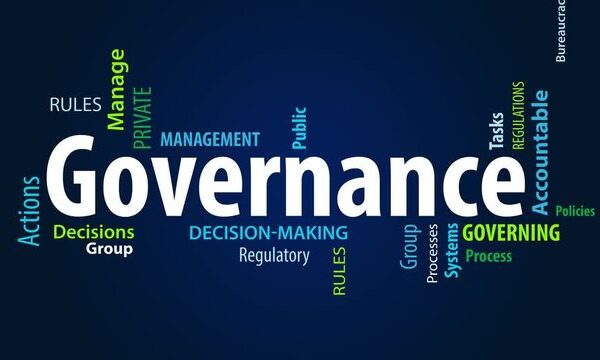Introduction
In the age of artificial intelligence, synthetic biology, climate change, and systemic geopolitical risks, the development and enforcement of ethics policies have never been more crucial. These policies not only shape immediate behavior but also influence the long term trajectory of humanity and the environment. The convergence of ethical theory and policy design with future impact analysis defines a dynamic and strategic domain: Ethics Policy and Future Impact.
Using the Koray Framework, we approach this not merely as a keyword but as a topical authority entity characterized by multi layered connections to governance, risk management, foresight, and values based systems design. This content serves as a semantic core designed to act as both a topical hub and a gateway to interconnected clusters on AI safety, governance, intergenerational justice, and global regulatory ethics.
What Is Ethics Policy and Future Impact
Ethics Policy and Future Impact refers to the intersection of moral governance and long range strategic foresight. It encompasses the design, implementation, and evaluation of principles, regulations, and institutional frameworks aimed at guiding human actions responsibly in the present while considering their potential societal, technological, environmental, and existential consequences in the future.
This field involves
- Formulating ethical standards that guide decisions and policy making
- Anticipating the long term effects of those policies on people, societies, ecosystems, and technologies
- Embedding value aligned principles into systems such as artificial intelligence, biotechnology, and climate engineering
- Safeguarding the interests of future generations and mitigating global catastrophic risks
In semantic terms, this domain acts as a hub entity linking to attributes such as transparency and foresight, relationships such as policy enforcement and impact modeling, and connected subtopics such as data ethics, algorithmic accountability, and sustainability governance.
Philosophical and Ethical Foundations
Deontological Ethics
This approach emphasizes duties, rights, and intrinsic moral values. In the context of policy, it insists that certain actions such as violating privacy or consent are inherently wrong regardless of outcomes.
Consequentialism and Utilitarianism
Here, the moral worth of an action depends on its consequences. Ethics policies under this framework focus on minimizing harm and maximizing collective well being across time.
Virtue Ethics
Virtue ethics focuses on character formation, moral agency, and fostering socially beneficial behavior. It is relevant for shaping ethical cultures in organizations and policy institutions.
Principlism
Widely used in bioethics and global policy, principlism combines four key ethical principles
- Autonomy: Respect for individuals self determination
- Beneficence: Doing good and promoting well being
- Non maleficence: Avoiding harm
- Justice: Ensuring fair distribution of benefits, burdens, and risks
An effective ethics policy blends these foundations, ensuring both procedural integrity and outcome sensitivity.
Governance and Implementation Structures
Effective ethics policies must be embedded within governance architectures that ensure accountability, adaptability, and scalability. This includes
Institutional Design
- Ethics boards and advisory committees
- Whistleblower protection systems
- Ombuds offices and appeals mechanisms
Policy Instruments
- Soft law including codes of conduct and best practices
- Hard law including legislation and international treaties
- Technical standards such as ISO, IEEE, GDPR protocols
Governance Principles
- Transparency: Open access to policy rationale, decision making processes, and implementation data
- Accountability: Clear lines of responsibility, liability, and redress
- Participation: Inclusion of diverse stakeholders, especially marginalized voices and youth representatives
- Foresight: Institutional capacity to assess future impacts, adapt policy, and integrate ethical horizon scanning
- Redressability: Mechanisms for individuals and groups to challenge unethical actions or decisions
These structures create the infrastructure necessary to sustain and enforce ethics across sectors and jurisdictions.
Emerging Technologies and Novel Ethical Risks
Artificial Intelligence
Key issues include
- Algorithmic bias
- Explainability and transparency
- Autonomy versus human in the loop oversight
- Moral agency and decision making
AI ethics frameworks focus on ensuring that systems align with human values, respect rights, and provide recourse for affected individuals.
Biotechnology and Synthetic Biology
Ethical challenges include
- CRISPR and gene editing
- Designer genetics and eugenics
- Biosecurity and dual use research
- Synthetic life and moral status
Ethics policies must balance innovation with biological integrity, biosafety, and long term ecological consequences.
Climate Engineering and Environmental Ethics
Debates center on
- Geoengineering
- Carbon removal versus mitigation
- Global ecological governance
- Rights of nature and future generations
Policies must incorporate environmental justice, planetary boundaries, and indigenous ethical perspectives.
Long termism and Intergenerational Justice
Long termism argues that the interests of future generations deserve significant moral consideration, especially when todays actions might lead to irreversible harm such as existential risks or climate collapse.
Core Concepts
- Intergenerational justice: Fairness between present and future people
- Future persons rights: Ethical status of unborn generations
- Ethical discounting: Avoiding time based moral devaluation
- Moral circle expansion: Including the unborn, non human entities, or digital minds
Institutions like the Future of Humanity Institute and Long Now Foundation emphasize the need to integrate long-term risk governance into present day policy design.
Foresight and Scenario Planning
Why Foresight Matters
Anticipating ethical dilemmas and technological risks is crucial for future proofing policy. Ethics must evolve alongside technological capabilities.
Tools and Methods
- Scenario planning: Envisioning plausible future states and their ethical implications
- Horizon scanning: Identifying early signs of change or disruption
- Backcasting: Working backward from preferred ethical outcomes
- Stress testing: Evaluating policy resilience under extreme conditions
- System dynamics modeling: Simulating ethical trade offs across systems
These methods should be integrated into every stage of policy development from ideation to implementation.
Accountability, Monitoring, and Evaluation
Ethics policy must not remain theoretical. It must be enforced, measured, and improved over time. Essential components include
- Ethical audits: Independent evaluations of policy adherence
- Transparency reports: Public documentation of decisions, violations, and redress actions
- Algorithmic impact assessments: Pre deployment evaluations of AI systems
- Redress and appeal mechanisms: Legal and procedural pathways for complaints and correction
- Feedback loops: Mechanisms for iteratively improving policy based on real world data
This forms a living, adaptive ethical system aligned with democratic values and public accountability.
Real World Examples and Case Studies
GDPR General Data Protection Regulation
A landmark in data ethics, GDPR mandates privacy by design, consent protocols, and rights to data erasure. It reshaped global data practices.
EU AI Act
Proposes risk based classification of AI systems with escalating obligations for high risk and prohibited systems. It integrates explainability, traceability, and human oversight.
Paris Climate Accord
Though not explicitly ethical, it embodies intergenerational commitments to sustainability and ecological integrity.
UNESCO Gene Editing Framework
Establishes global ethical norms and limitations on human germline modification emphasizing precaution, equity, and informed consent.
Each of these examples shows how moral norms are codified into regulatory infrastructure with varying degrees of success and enforcement.
Tensions, Dilemmas, and Critiques
No ethics policy is immune to conflict or critique. Common tensions include
- Universalism versus pluralism: Global ethical standards may not accommodate all cultural contexts
- Rights versus outcomes: Some policies may reduce harm but infringe on individual rights
- Paternalism versus autonomy: Well intentioned ethics frameworks may become overly restrictive
- Technocracy versus democracy: Expert driven ethical regulation may lack public legitimacy
- Compliance fatigue: Overregulation can stifle innovation and desensitize stakeholders
Addressing these tensions requires ethical humility, robust deliberation, and mechanisms for dissent, revision, and inclusive engagement.
The Road Ahead and Future Ethics
Over the next decades, humanity may face decisions that determine civilizational survival and trajectory. Ethics policies must prepare for
- Artificial general intelligence and global governance
- Climate tipping points and ecological migration
- Synthetic sentience and digital consciousness
- Brain computer interfaces and neuro rights
- Digital immortality and identity protection
We need modular, adaptive, and transparent ethical infrastructures designed to evolve and scale with the needs of a rapidly transforming world.
Strategic Recommendations
- Position this topic as a hub entity within your site or knowledge base
- Create satellite pages around supporting subtopics such as AI ethics, intergenerational justice, and foresight methods
- Interlink them semantically using entity-based anchor text and logical topical connections
- Update frequently to reflect evolving regulatory, scientific, and technological developments
- Use schema markup and structured headings to enhance topical relevance and authority
- Quote key entities such as UNESCO, Future of Life Institute, and OpenAI to enrich topical density
- Translate academic concepts into business and policy contexts for wider audience engagement
What is an ethics policy?
An ethics policy is a formal set of guidelines that governs decision making and behavior based on moral principles.
Why is future impact important in policymaking?
Because today decisions can create long term consequences that affect future generations, ecosystems, and global stability.
What is long termism?
Long termism is the ethical belief that the long term future should be a central consideration in current decision-making.
How does AI pose ethical challenges?
AI can generate biased outcomes, lack transparency, and make high stakes decisions without human oversight.
What is intergenerational justice?
It refers to fairness in how current generations treat future generations, especially regarding resources, environment, and risk.
How can ethics be enforced in institutions?
Through audits, accountability structures, transparency reporting, and legal compliance mechanisms.
What is the precautionary principle?
It is the idea that action should be avoided if its risks are unknown or potentially catastrophic, especially for future impact.
How does foresight help ethics policy?
It anticipates future scenarios, helping policymakers prepare for and ethically manage emerging risks.
What role does governance play in ethical impact?
Governance structures translate moral principles into rules, regulations, and enforcement systems.
Can ethics policies prevent existential risks?
Yes, if designed and enforced correctly, they can help avoid threats that could endanger humanity future.
Conclusion
Ethics Policy and Future Impact is not a static field. It is a living system of norms, institutions, risks, and responsibilities evolving with technological power and human ambition.
In an age of unprecedented capability and complexity, the absence of ethics is not neutrality, it is danger. The systems we design today will shape the lives of billions tomorrow. The policies we codify now will define the conditions of possibility for our descendants, our ecosystems, and our intelligent machines.
Therefore, the creation, implementation, and enforcement of robust ethics policies grounded in foresight and built for adaptability must become a first-order civilizational priority.



